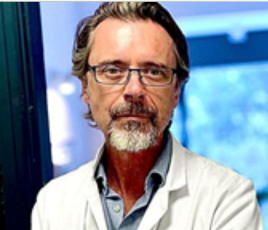Asia-Pacific Mental Health and Well-being Congress
THEME: "Future Directions: Pioneering Mental Health and Well-being Initiatives"
 27-29 Oct 2025
27-29 Oct 2025  Bali, Indonesia
Bali, Indonesia THEME: "Future Directions: Pioneering Mental Health and Well-being Initiatives"
 27-29 Oct 2025
27-29 Oct 2025  Bali, Indonesia
Bali, Indonesia 
London Scientific Neurotherapy, United Kingdom
Title: Innovations in Mental Health: How QEEG Brain Mapping Brings Precision to Clinical Practice
Dr. Antonio Martins-Mourao is a clinical neuro-psycho-physiologist and developmental psychologist with a PhD from University College London. He is the Clinical Director of London Scientific Neurotherapy, a specialist centre focused on the recovery of patients with brain injury and emotional trauma through QEEG brain mapping and neuromodulation. He also founded the QEEG & Brain Research Lab at The Open University (UK), where his research focused on identifying electrophysiological markers for OCD, PTSD, and anxiety disorders. He specialises in the use of neuromarkers to identify and treat complex mental health conditions, and has trained mental health professionals worldwide in integrating QEEG into clinical practice.
This presentation introduces a practice-ready approach to integrating Quantitative EEG (QEEG) into clinical mental health care—particularly for trauma-affected and treatment-resistant patients. Informed by the U.S. National Institute of Mental Health’s Research Domain Criteria framework (RDoC, 2013) and aligned with emerging models in precision psychiatry, this method enables the objective measurement of brain dysfunction—a significant advance over traditional symptom-based diagnosis. Unlike MRI, which reveals structure, QEEG provides real-time access to brain function. Through techniques such as Independent Component Analysis (ICA), clinicians can localise subcortical dysfunction in circuits involved in emotional regulation, attention, and trauma response—such as the insula, cingulate cortex, and precuneus. Real-world case examples demonstrate how patients with the same DSM diagnosis can show divergent brain profiles—and how shared neuromarkers can appear across unrelated diagnostic labels. These findings support deep phenotyping, shifting focus from symptom clusters to the brain’s functional architecture. By identifying transdiagnostic patterns in neural activity, QEEG helps clinicians overcome the limitations of categorical diagnosis and deliver more accurate, brain-based care tailored to each individual. This session offers clinicians an accessible introduction to a replicable, trauma-informed framework for integrating QEEG into psychotherapy, psychiatry, and mental health practice. It is not a technical deep dive, but a clinical invitation—to see how even simple neural data, correctly interpreted, can transform treatment planning and therapeutic precision from within a standard clinical setting. QEEG represents a quiet but profound shift: from subjective diagnostic labels to objective neural measurement. From descriptive maps… to actionable insight.